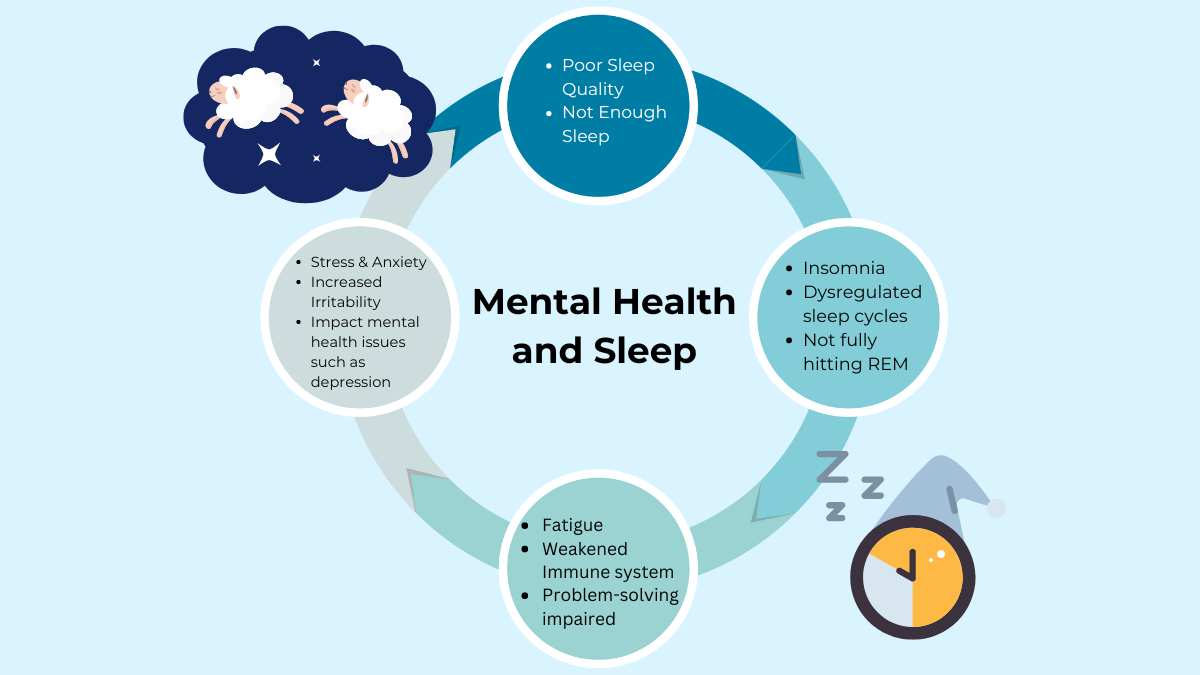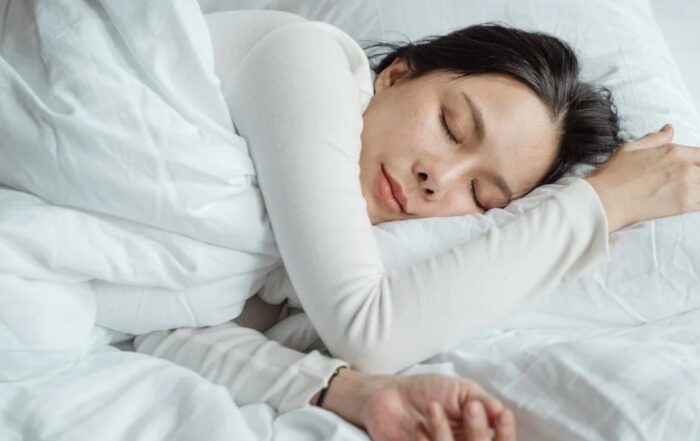Did you know on average adults need 7-9 hours of sleep for optimal functioning; and that most adults in the US only get an estimated 5.7 hours of sleep despite this? There are many reasons that people don’t get enough sleep, whether it be a difficult work-life balance, major life transitions like a new job or in more severe cases, stress or sleep disorders. Sleep is important for many reasons, the most important being resting the brain and processing information from the day. Everyday we learn new information and create short-term memories, but in order for our brain to encode them into our long-term memories we need to be getting an adequate amount of sleep; otherwise information from our day isn’t stored as thoroughly.
In addition to the effect sleep has on our memory it also has many impacts on us physiologically; with the body and mind affecting each other in tandem. Good quality sleep is so essential it has the power to create physical problems such as headaches, fatigue and weakened immune systems which in turn can lead to mental health issues created by the stress and worry of not being in good physical health. Further, for those who have mental health diagnoses such as Depression, Anxiety and Bipolar poor sleep can be a catalyst for more severe symptoms and even mental health episodes. The mind-body connection is often overlooked as physical and mental health can sometimes be perceived as independent of one another, which is just not the case. When the needs of the body aren’t met it almost always impacts the needs of the psyche, and vice versa.
So what can be done to keep this balance healthy? The number one way to make sure that you are getting adequate and quality sleep is by creating a consistent nighttime routine. This routine should include a series of wind-down activities such as…
● Staying away from blue light (ie. phones, computers etc.)
● Journaling about your day and any stressors you encountered
● Making a brief list of things to do tomorrow to help calm the mind
● A brief walk at a slow pace before bed
● Avoiding large meals or snacks at least an hour before bed
Having a consistent routine with at least one of the above suggestions can make a significant impact on your sleep patterns. However, if your sleep struggles persist a sleep study may give you more insight if there are deeper health issues involved.
Sources:
1. https://www.apa.org/ptsd-guideline/patients-and-families/cognitive-behavioral
2. https://www.ncbi.nlm.nih.gov/pmc/articles/PMC8489050/
3. https://www.self.com/story/9-things-you-should-know-about-cognitive-behavioral-therapy
4. (Graphic created by Constantly Healthy)
Related Articles
Start Living Constantly Healthy Today
Same Day Therapy with Weekend & Evening Availability







